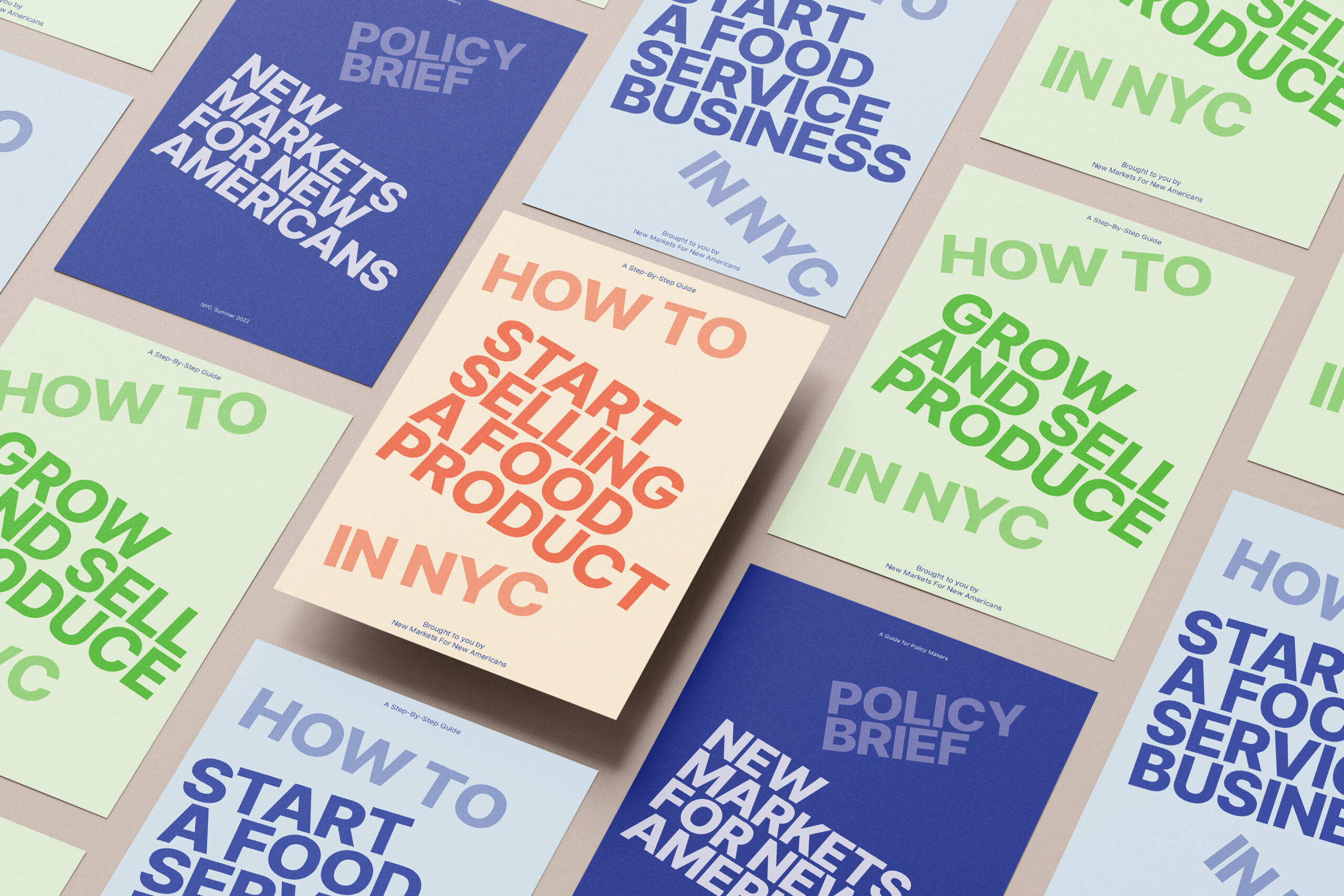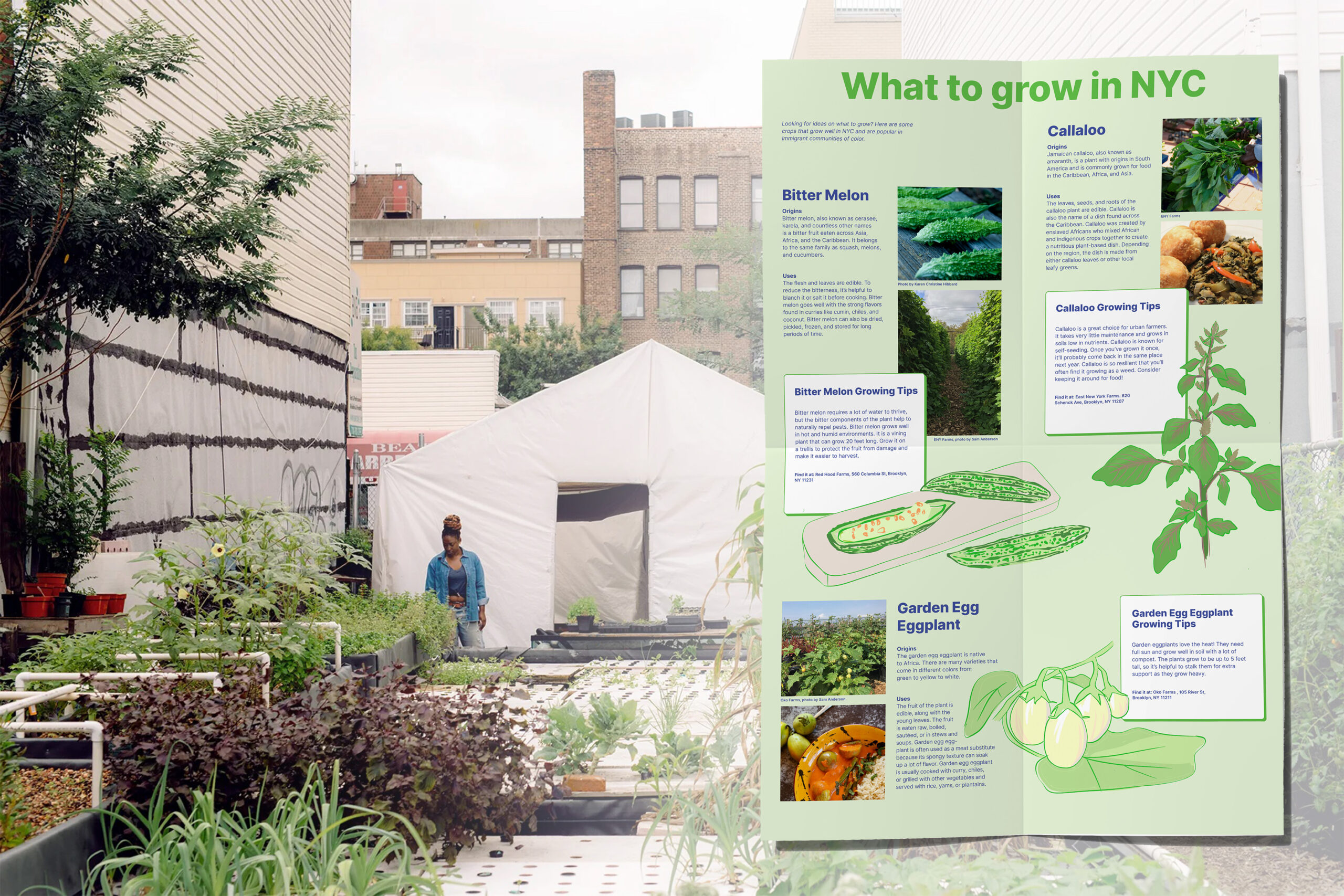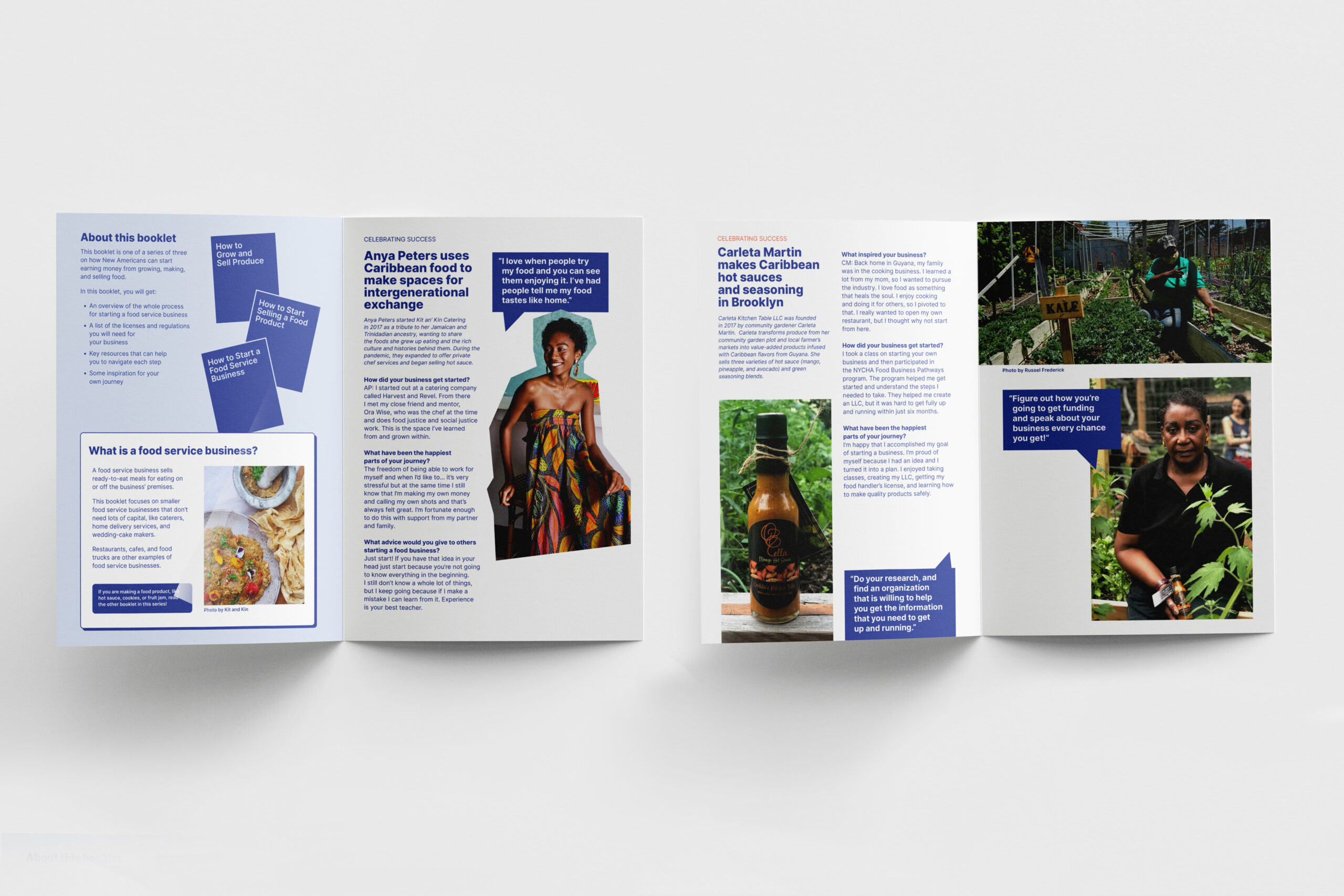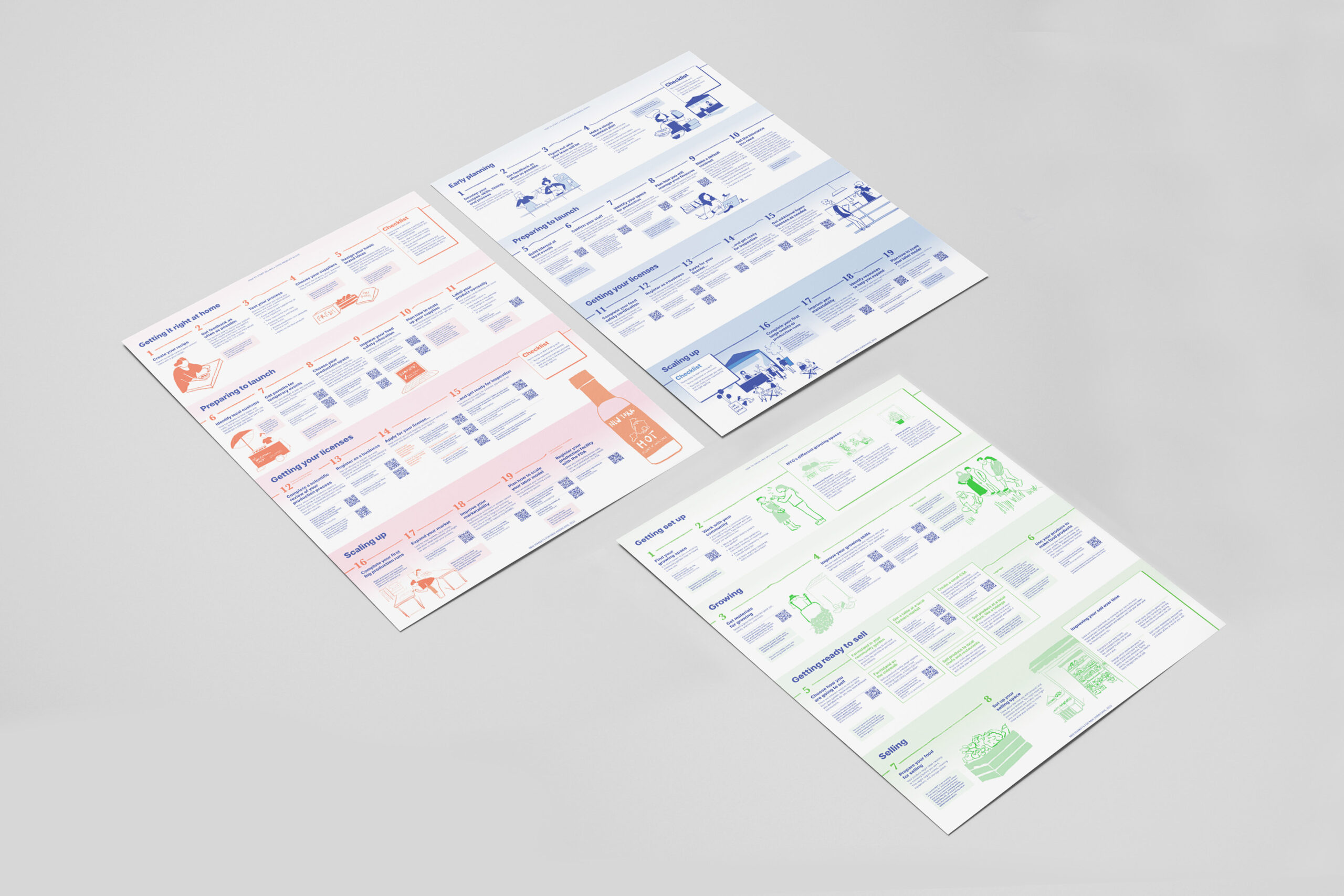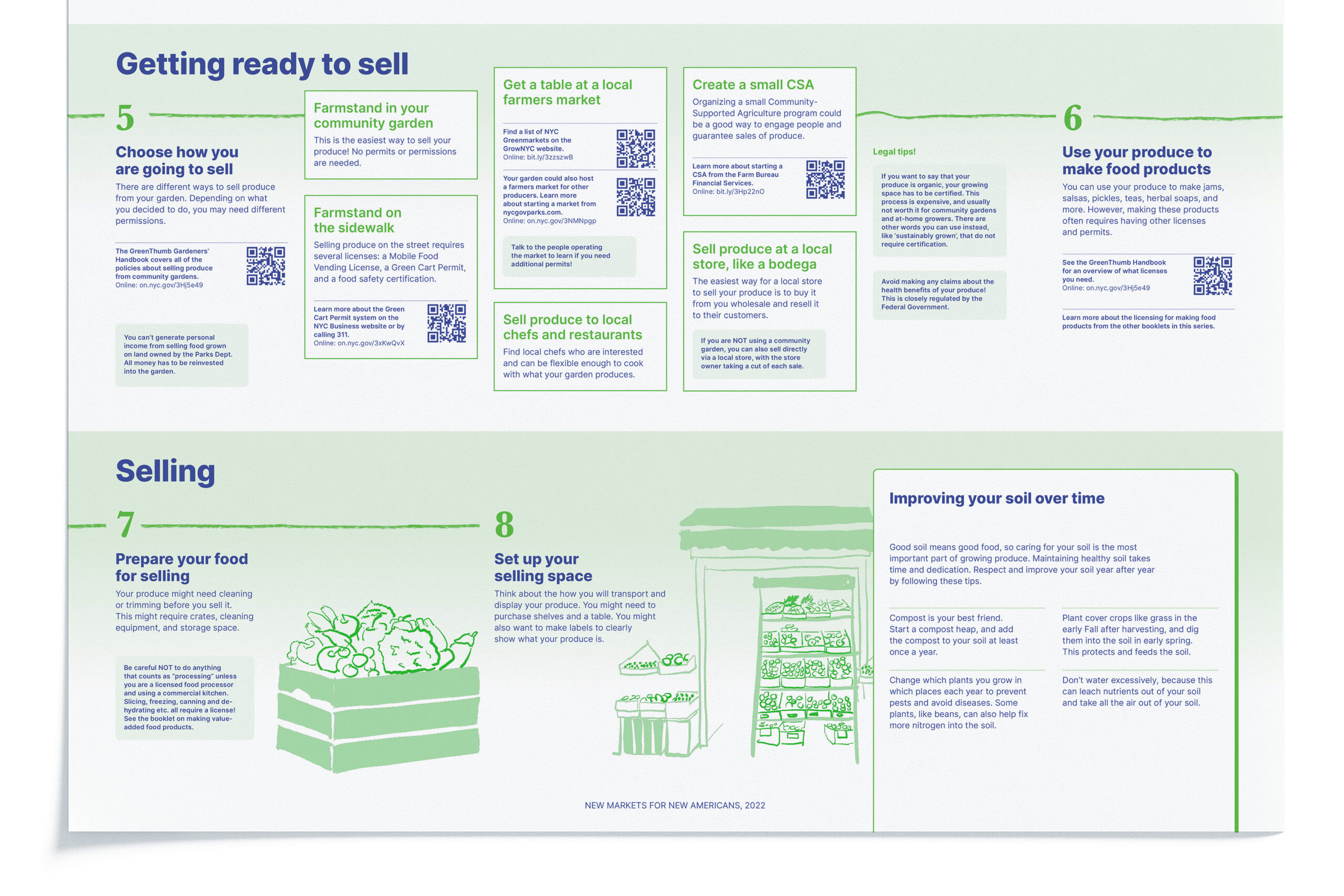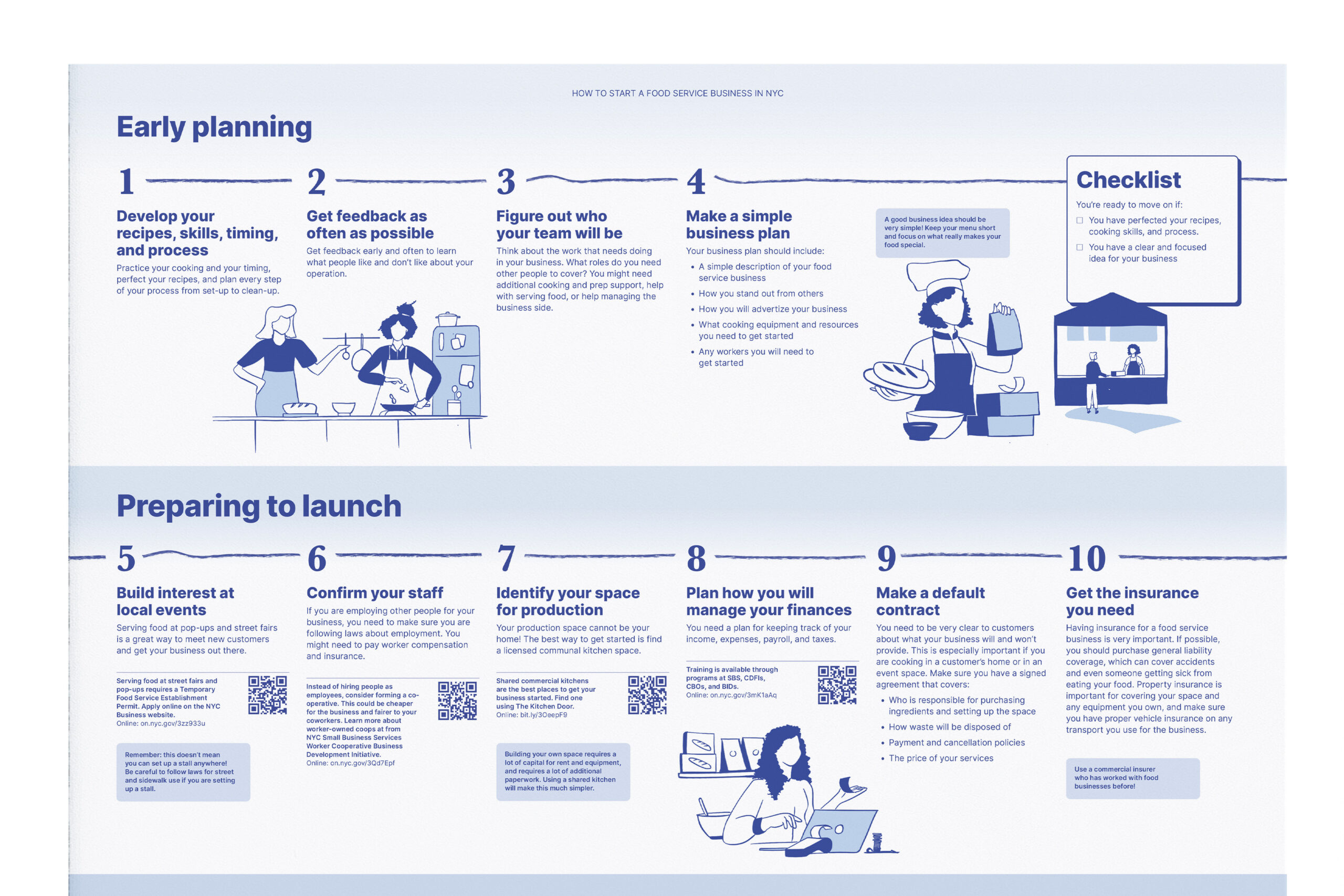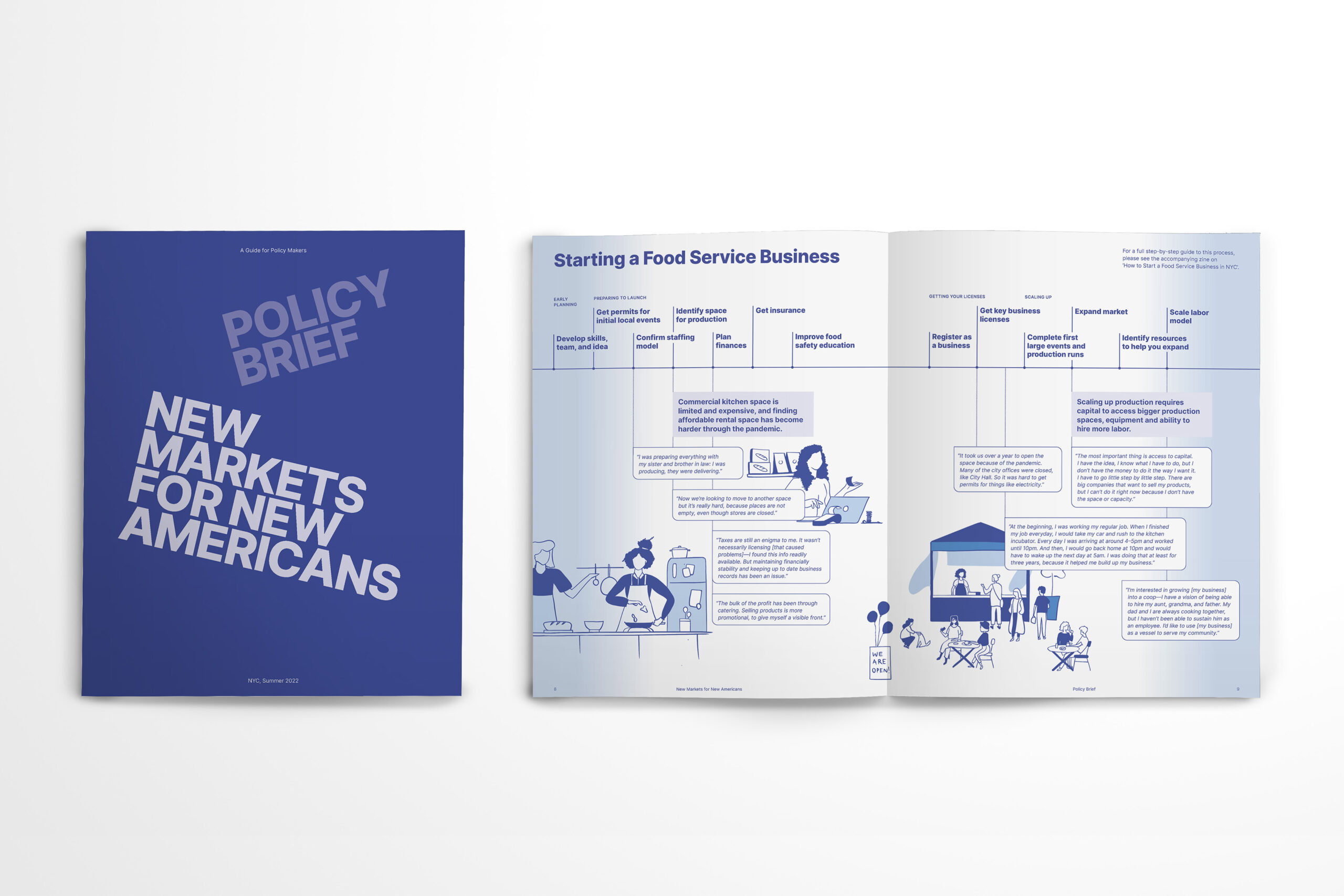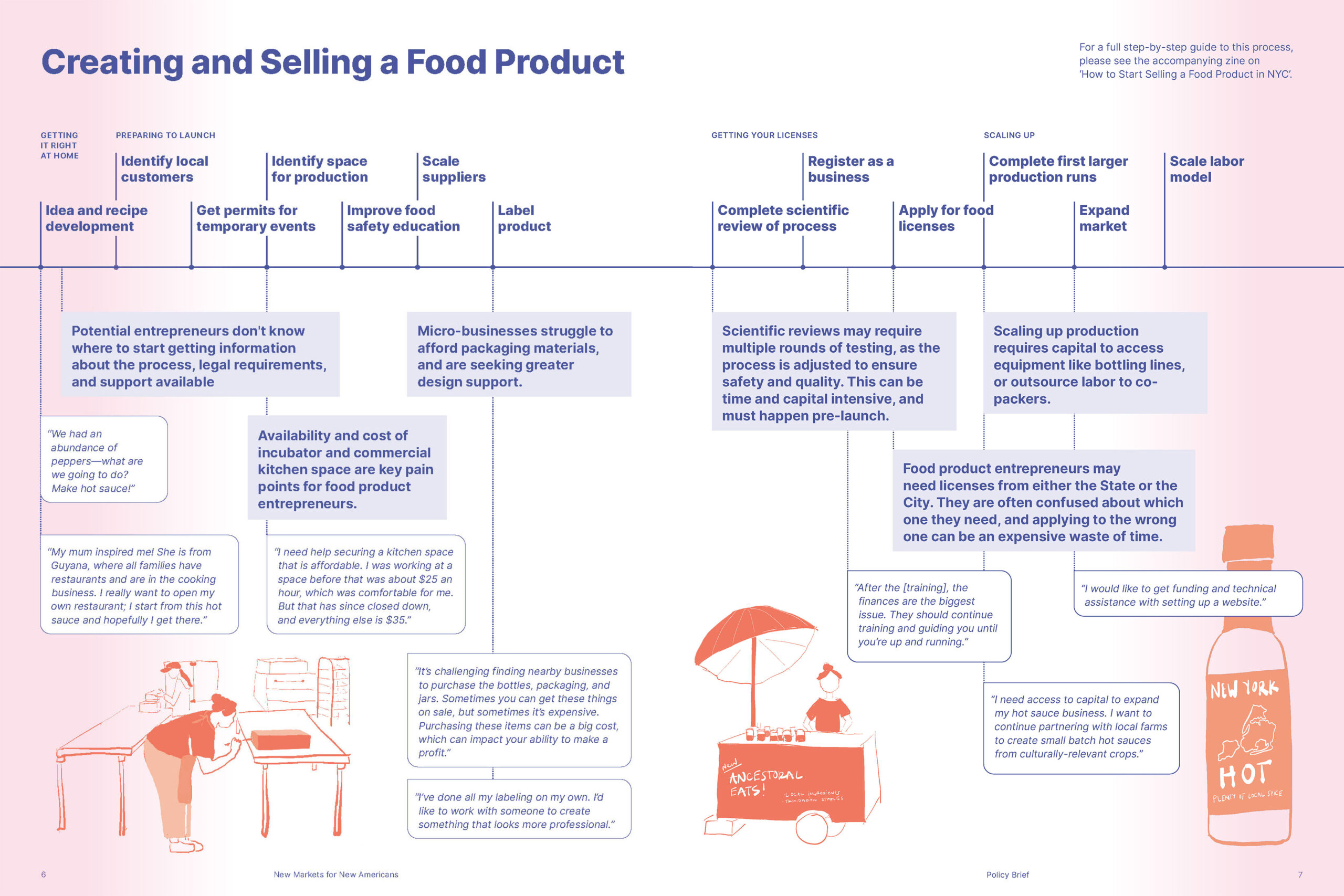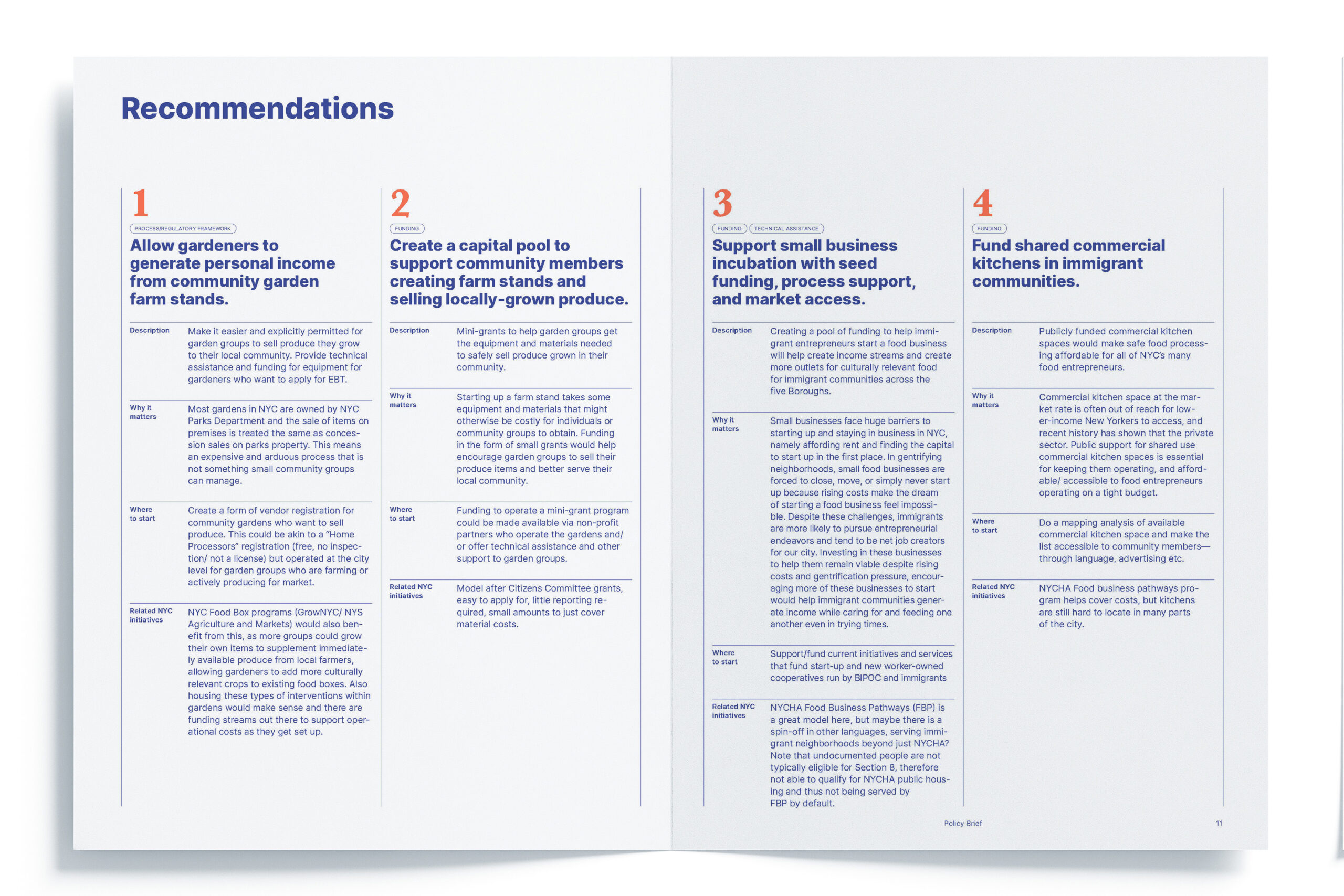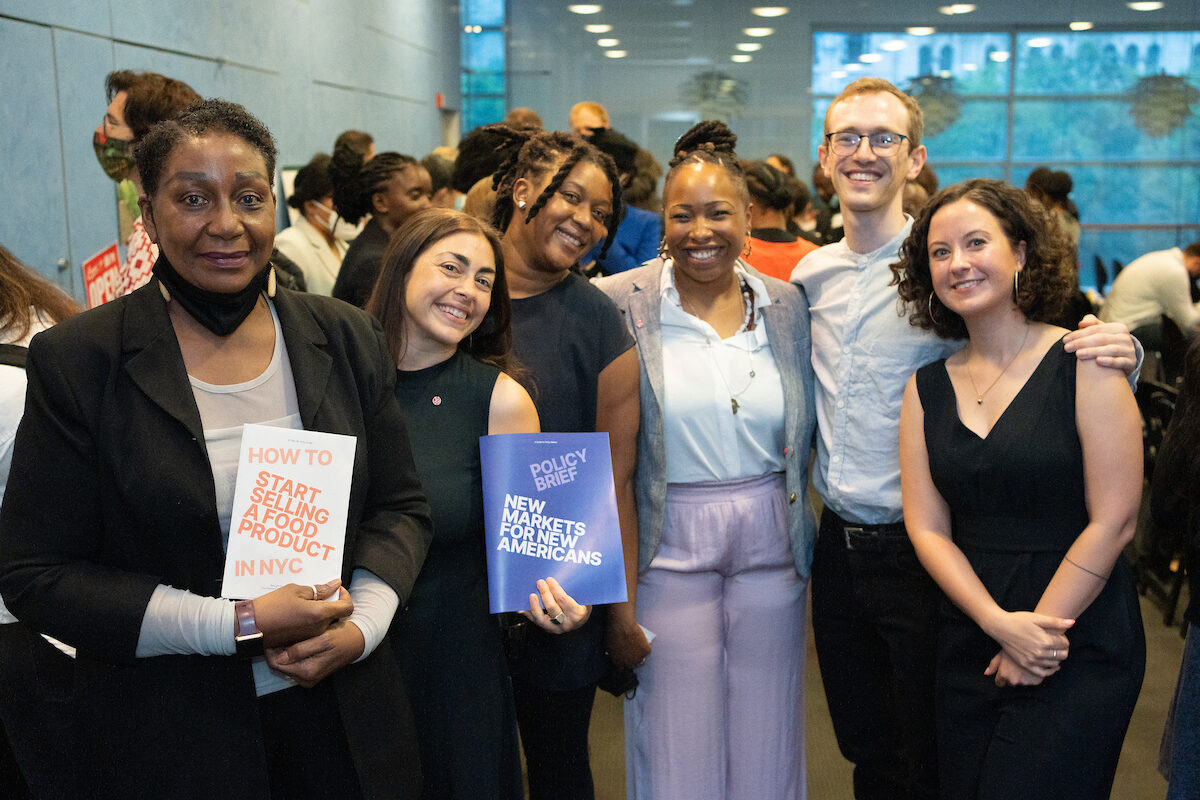
The Urban Design Forum’s 2021 Forefront Fellowship, Neighborhood Fare, explored how to foster food equity in every New York City neighborhood through the built environment. In partnership with the Department of City Planning and the Mayor’s Office of Food Policy, Fellows investigated how city government can strengthen community-based infrastructure to advance food equity.
This year, Fellows developed original projects that explore how to shape better food landscapes, decentralize food hubs, support immigrant-led food businesses, and create community among urban growers. Learn more about their projects here.
By Tim Duschenes, Olivia Flynn, Genea Foster, Rae Gomes, Despo Thoma, Kimberly Vallejo
Immigrants are the backbone of New York City’s economy. Since the 1980’s, New Americans have created half of the small businesses in the city. Despite being economic drivers, tourist attractions, and part of the city’s rich cultural make-up, immigrants working in any facet of the food industry lack support in the best of times, and are the most vulnerable in a disaster. When the city shut down in early 2020, immigrant-owned businesses, along with Black-owned businesses, received the least assistance, and immigrant neighborhoods saw the highest rates of food insecurity.
Equitable recovery for New Americans must include support for immigrant-led businesses that immigrants rely on for economic stability and food security.
In this project, our goals are to help demystify the process to build a food business and lower the barrier to entry for New Americans who are already in the food service industry, or who are interested in starting a food business. We interviewed immigrants at varying levels of creating a food business and used the collective experience of the fellows to create the resources, services, and processes needed to navigate the city’s food landscape.
Our team created three informational zines that feature journey maps, resources, and success stories, in three main categories: food service, growing/selling produce, and selling value-added food products. We chose these three as the processes, and licenses for getting a business up and running are distinct and challenging in their own ways.
We also created a policy brief for policymakers to identify significant barriers in the process of creating and sustaining immigrant-owned businesses.
Explore these publications online or download them below.
Informational Zines
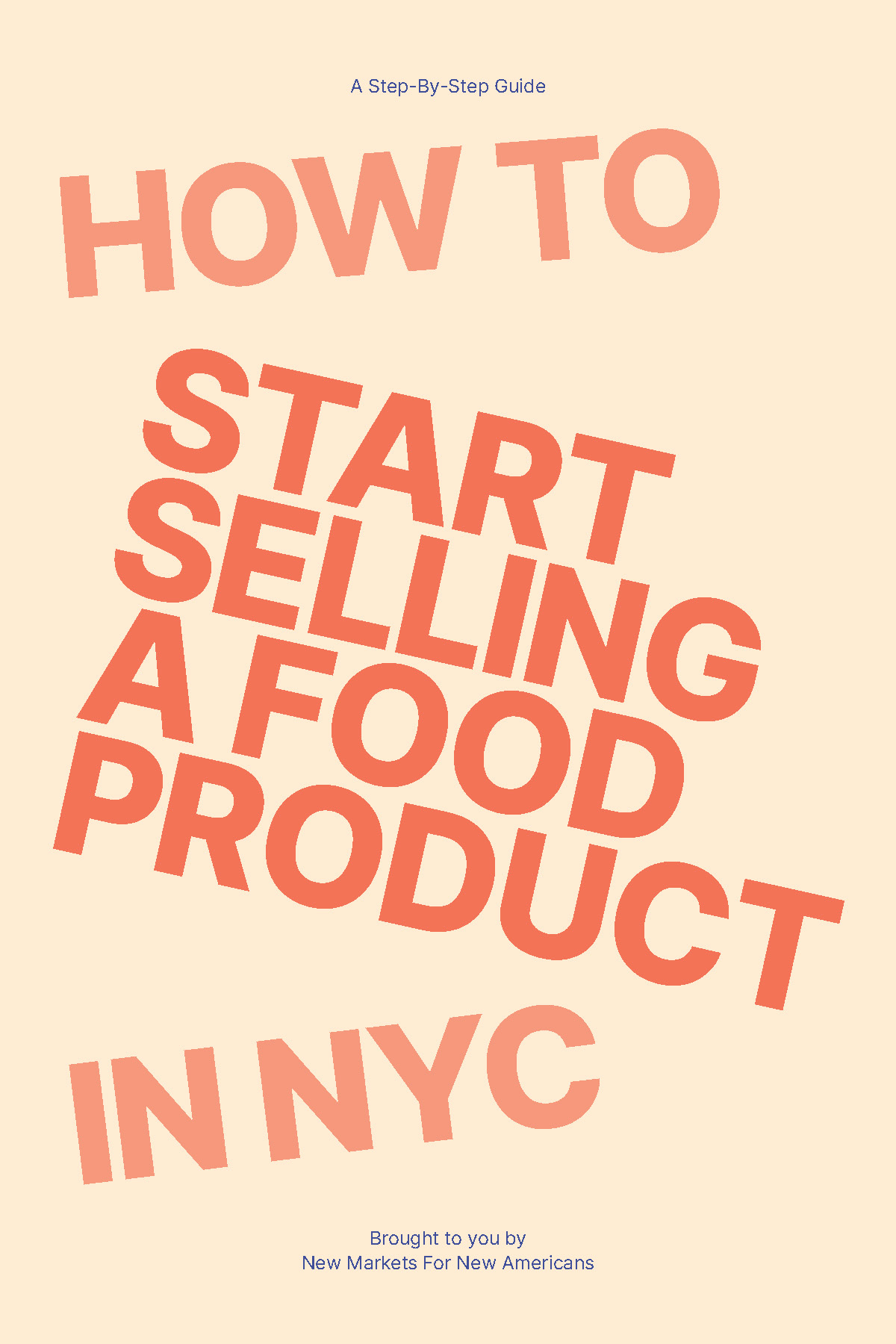
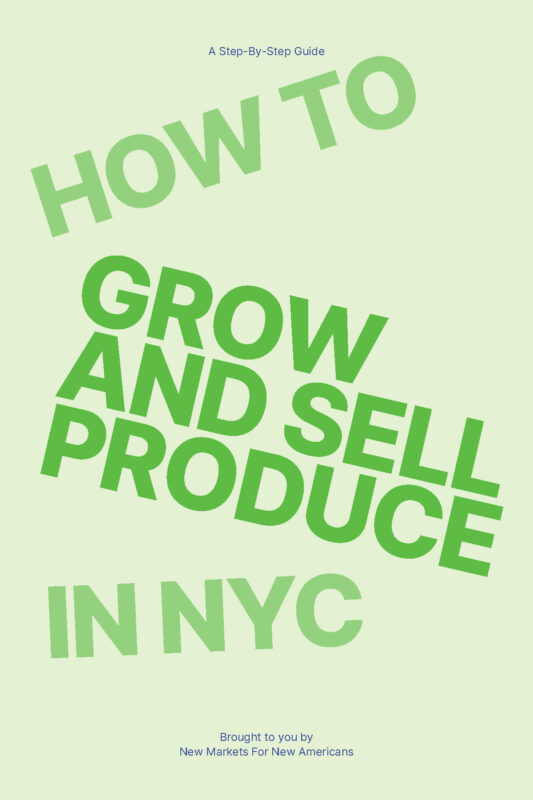
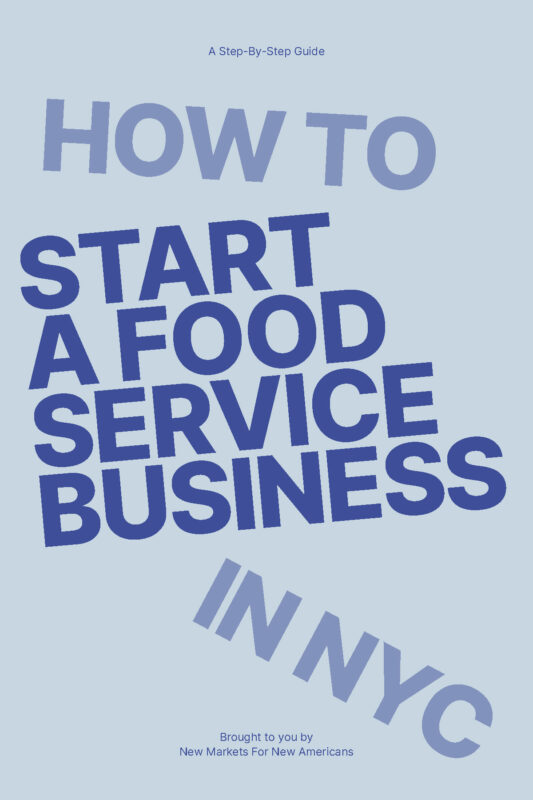
Policy Brief
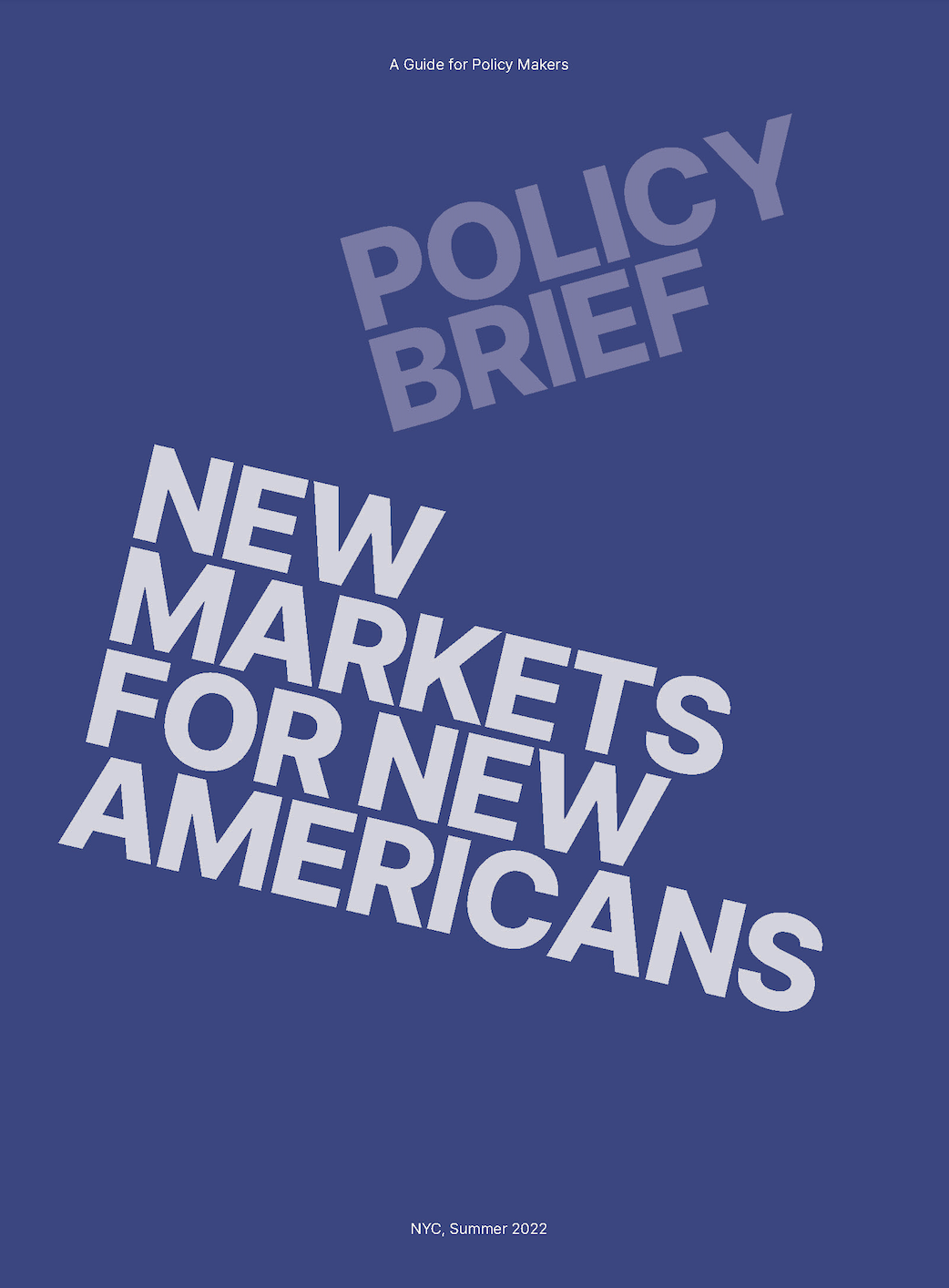
If you would like to reach out to the Fellows behind this project, please contact NewMarketsForNewAmericans@gmail.com.
